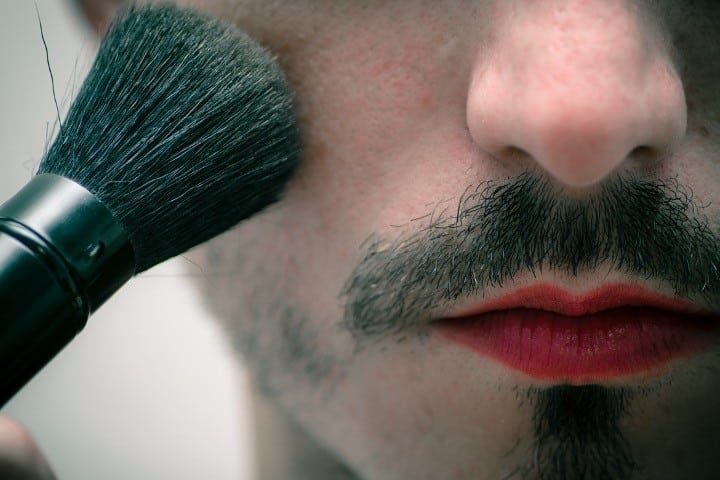
Increasingly, Americans are learning that there’s no valid science behind so-called transgenderism, and that the term is not a scientific designation but a political one. What’s more, despite modern-day Lysenkoists’ best efforts at convincing us that “gender identity disorder” (GID) has a biological basis and thus requires a biological (physical) fix, people may be more likely than ever to accept the truth that it’s a psychological disorder.
Yet Americans do generally believe that the MUSS (Made-up Sexual Status, aka “transgender”) agenda is driven by people with GID and their enablers, and/or by men seeking to advantage themselves by masquerading as women. While the latter motivation is, in fairness, rare except in cases of male prison inmates, there is another ill wind under the MUSS agenda’s wings, one of which few are aware.
It’s called autogynephilia.
For those unacquainted with the term, the National Library of Medicine (NLM) informs that it’s “defined as a male’s propensity to be sexually aroused by the thought of himself as a female.”
That this paraphilia can animate the MUSS agenda is not some new revelation. In fact, the NLM also wrote, in 2011, that autogynephilia “is theorized to underlie transvestism and some forms of male-to-female (MtF) transsexualism.” What brings it to light currently, however, are some Instagram posts by Will (aka “Lia”) Thomas — posts that inspired a warning from a sex neuroscientist.
Thomas is the male athlete who made waves by claiming female status and then competing on the University of Pennsylvania women’s swim team. When he then dominated his female competition, many women swimmers cried foul. For Thomas’ part, though, he claimed he was just being true to himself. Except now, we learn, there’s this:
Jake Crain, host of the Crain & Company podcast, posted on Twitter a thread from an Instagram account reportedly belonging to Thomas — and it shows that the swimmer apparently “liked” a number of messages pertaining to autogynephilia (AGP).
I won’t post the thread here, but it is something to see. In fact, it attracted the attention of the aforementioned sex neuroscientist, Dr. Debra Soh, and inspired her to pen an article about the AGP-MUSS agenda connection.
Writing at the Washington Examiner Monday, Soh points out that we can’t actually know whether or not Thomas experiences AGP. What is certain, however, is that the phenomenon is to some extent a MUSS agenda driving force.
Soh explains that “AGP can involve cross-dressing, eroticizing female bodily functions, and partaking in activities that women usually do.” One implication of this is that while MUSS men entering women’s sports rarely if ever do so because, as some contend, they seek easier competition, this doesn’t mean they don’t have ulterior motives: Some may very well find their participation titillating.
And what really may tip some MUSS activists’ hand is, well, that they doth protest too much. In fact, according “to trans activists and their allies, AGP doesn’t [even] exist; it is a hateful myth based on outdated medical research,” writes Soh. “Others will claim that women also experience AGP, so it is a typical part of womanhood. Women, however, do not get turned on by getting dressed in the morning or, say, menstruating, lactating, or speaking with a female voice.”
Soh points out that many men saddled with AGP feel “guilt, shame, and confusion,” and most suffer in silence and don’t masquerade as female full-time. Nonetheless, there “exists an overlap between AGP and narcissistic and antisocial personality disorders,” she tells us. This helps explain “the most aggressive individuals with AGP,” as Soh puts it, who demand that MUSS men “be considered indistinguishable from women, and who are overriding social boundaries and requiring policy to facilitate this….”
Tragically, this prurient-interest-driven activism harms the least among us, children, and not just by creating distorted social boundaries. Just consider the testimonial of Dr. Paul McHugh, former chief of psychiatry at Johns Hopkins Hospital and distinguished service professor of psychiatry at Johns Hopkins University.
He explained years ago already that some MUSS men he and his colleagues studied over the decades weren’t gender dysphoric but, in fact, had AGP. These men wanted to display themselves in sexy ways, wearing provocative female garb (think here about the drag shows to which kids have been exposed).
More often than not, while claiming to be women in men’s bodies, they declared themselves to be ‘lesbians’ (attracted to other women),” reported McHugh.
Despite this, however, these men are part of the MUSS pool of “witnesses” who justify using gender dysphoria as a pretext for childhood opposite-sex “transitioning.” Yet, as McHugh explains, citing ex-Olympian Bruce Jenner as a likely autogynephiliac, “Most young boys and girls who come seeking sex-reassignment are utterly different from Jenner. They have no erotic interest driving their quest. Rather, they come with psychosocial issues — conflicts over the prospects, expectations, and roles that they sense are attached to their given sex — and presume that sex-reassignment will ease or resolve them.”
In other words, in the name of indulging their perversion, these adults are helping create an environment in which kids are damaged — sometimes permanently.
Returning to Soh, she addresses the AGP-oriented deceit inherent in the MUSS agenda, concluding, “I’m willing to bet that the majority of those denying AGP exists, not only know that it exists but experience it themselves. I sincerely hope they will one day heal this inner turmoil instead of channeling it at the rest of the world.”
This, however, is too much to hope for from damaged people in thrall to dark passions. What’s more realistic is having a society that discourages perversion. And shame on us for failing to do so — all in the name of value signaling and social acceptance.



